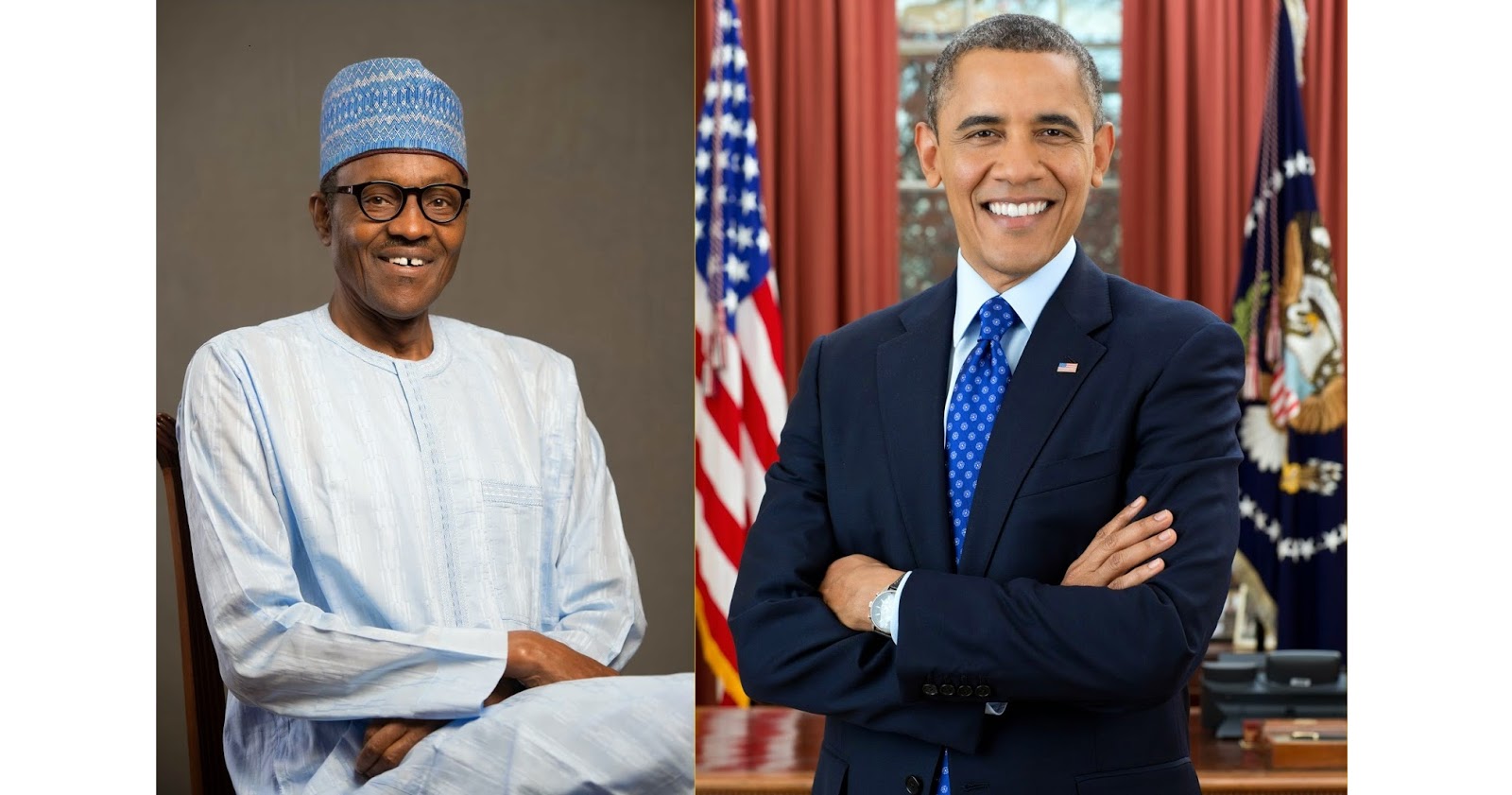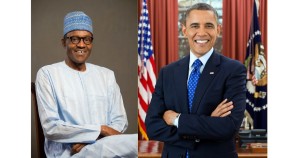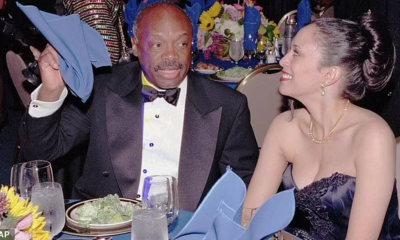Finance
Corruption: President Buhari to seek Obama’s assistance on Diezani and others

By Yemie ADEOYE
LAGOS-THERE are high indications that Nigeria’s newly elected President Muhammadu Buhari may have scheduled plans to seek the united states government’s assistance in apprehending the immediate past Minister of Petroleum resources Mrs. Diezani Alison-Madueke and other corrupt officials of the last government with the intent of bringing them to face the full wrath of the law if found guilty.
Already Biztellers can authoritatively reveal that a high level investigation into her tenure as Minister of Petroleum is already ongoing with no less than 8 top executives and stakeholders in the oil and gas sector ready to come forward with incriminating evidence against her.
The Nigerian President hopes to bring up the request during his scheduled visit with President Barrack Obama of the United States at the White House on Monday July 20.
A presidency source who spoke on the condition of anonymity confirmed that this has already been enlisted in the President’s itinerary of discuss at the White House, and that the issue takes top priority during the visit alongside the Boko Haram insurgency currently ravaging the North-Eastern area of the country.
Other ministers being investigated with the aim of bringing them to book includes the former minister of Niger-Delta Affairs and his counterpart in transport Sen. Idris Umar, Immediate past National Security Adviser (NSA) Col. Sambo Dasuki as well as the Chief Security Officer to former President Jonathan, Mr. Gordon Obua both of whom are under detention as at the time of filling this report.
Meanwhile, Mrs. Diezani Alison-Madueke who has been in London since the change of government in Nigeria has been reported to have offered a refund of $250 million dollars to the Nigerian government in return for immunity from further investigation and possible prosecution, SaharaReporters has learned. However, her overture has reportedly received a cold response from President Muhammadu Buhari.
According to Saharareporters “A source in Aso Rock and a ranking member of the ruling All Progressives Congress (APC) told our correspondent that the former minister has been reaching out to influential government and ruling party officials, in and outside Abuja, to prevail on President Buhari to accept her offer and let bygones be bygone. According to our sources, Mrs. Alison-Madueke had enlisted the support of several figures close to Mr. Buhari, including Governor Nasir el-Rufai of Kaduna State, to intercede with the incumbent president.”
Mrs. Alison-Madueke was one of the closest ministers to former President Goodluck Jonathan, and is reputed to have anchored and facilitated numerous money-laundering scandals and deals that characterized the era of the just-ended Jonathan administration. The former Petroleum Minister oversaw several oil swap deals, the disposition of oil wells handed over by Shell Petroleum to the Nigerian National Petroleum Corporation (NNPC), and the direct looting of funds through the NNPC. Former Central Bank Governor, Sanusi Lamido Sanusi, was forced out of office after he revealed that the NNPC had failed to remit more than $20 billion in oil revenues with the CBN.
The former Petroleum Minister is the latest of several officials who served under Mr. Jonathan’s government that are currently negotiating “soft landing deals” with the Buhari administration. The incumbent president, who was sworn in on May 29, 2015, has vowed to probe various questionable financial actions taken by his successor or officials of his government. Mr. Buhari is reportedly determined to recover billions of dollars in stolen funds.
One source said Mrs. Alison-Madueke’s latest offer to refund at least $250 million to the government came after she learned that President Buhari’s scheduled meeting with US Attorney General, Loretta Lynch, would include a discussion of ways that the US government could facilitate the investigation, arrest and prosecution of some officials of the Jonathan administration implicated in the theft of billions of dollars and a variety of frauds that resulted in the loss of significant sums of public funds in Nigeria.
SaharaReporters exclusively reported earlier in the week that the former Minister of Finance and the Coordinating Minister of the Economy, Ngozi Okonjo-Iweala, has been cooperating with the Buhari administration’s ongoing, if quiet, probe of a series of questionable financial transactions by the Jonathan administration.
Our sources revealed that Mrs. Okonjo-Iweala had given the Buhari administration documents that expose a number of shady financial deals executed by the Jonathan administration.
Two days ago, it was reported that former Secretary General of the Commonwealth, Emeka Anyaoku, had appealed to Mr. Buhari to halt the ongoing probe of former President Jonathan’s administration. Even though Mr. Anyaoku has denied that he urged Mr. Buhari to stop the investigation of his predecessor’s financial dealings, our sources insisted that the ex-Commonwealth chief executive brought up the matter.
Our sources disclosed that Mr. Buhari was unimpressed by Mrs. Alison-Madueke’s offer. “Mr. President considers the $250 million as ridiculous considering the amount of money Mrs. Diezani Alison-Madueke is suspected to have diverted into her pocket and those of others,” said one source.
According to our sources, Mr. Buhari is intent on ordering a full audit of deals and transactions done by the former Petroleum Minister and her cohorts in the various agencies that reported to her.
In addition, the new president is reportedly focused on looking further at the extensive embezzlement of security funds by appointees of the former president. Mr. Buhari has approved an investigation of how more than $3 billion in Nigeria’s defense budget was spent. Security agents who searched the homes of former National Security Adviser, Sambo Dasuki, reportedly carted away some revealing documents.
Nigeria’s new President has never hidden his disdain for the lackluster and reckless impunity said to have been the hallmark of President Jonathan’s government, and hope to seek the US assistance in fighting the scourge and bringing officials of that government to book if found guilty.
Business
Nigeria pays US$4.9 billion on petrol subsidy in 2024- NNPCL
It was however noted by Biztellers.com.ng, that although subsidy is back in effect, the main reason for that is the increasingly weak state of the Naira and the country’s extreme dependence on products importation. Also unlike the previous subsidy era, where several oil marketers were getting free subsidy refunds for unverified product importation, this subsidy era is witnessing only one importer, the NNPCL, which in effect is the sole receiver of government subsidies.
Yemie ADEOYE
INSPITE of the official position of the Nigerian government that the controversial petrol subsidy is gone for good as announced by the President on assumption of office, the state owned Nigerian National Petroleum Corporation Limited, NNPCL has disclosed that petrol subsidy is still fully operational in Nigeria, although, under a different identity.
Umar Ajiya, Chief Financial Officer at the NNPCL, disclosed that it cost the company a staggering N7.8 trillion (US$4.9) to cover this price gap in the first seven months of 2024.
Rather than simply referring to these claims as subsidies, he stated that the company is merely managing the price difference in petrol imports on behalf of the federation, stressing that this should not be misconstrued as a return to subsidy payments.
![]() This revelation has reignited discussions on whether the NNPC is indirectly offering subsidies, a concept typically defined as selling a product below its cost price.
This revelation has reignited discussions on whether the NNPC is indirectly offering subsidies, a concept typically defined as selling a product below its cost price.
Documents reviewed by Biztellers.com.ng showed that the term “subsidy” was used extensively in official correspondence between the NNPCL and the presidency, particularly in reference to the “shortfall.”
Recall that President Bola Tinubu reportedly approved NNPC’s request to utilize the 2023 final dividends due to the federation to offset these costs.
However, during a media briefing on Monday about the company’s 2023 audited financial statements, Ajiya refuted claims that the NNPC is involved in any subsidy scheme.
Ajiya further disclosed that the Nigerian government owes the NNPC N7.8 trillion ($4.9 billion) in subsidy-related debts for the period from January to July 2024.
In furtherance of his clarification to the News Agency of Nigeria (NAN), Ajiya insisted that no subsidy payments have been made to any marketer in the last nine years, citing the NNPC’s role as the sole importer of petrol under supply contracts.
He said, “In the last eight to nine years, NNPC Ltd. has not paid anyone a dime as a subsidy; no kobo has been disbursed by NNPC Ltd. in the name of subsidy. No marketer has received any payment from us for subsidy.”
“What has been happening is that we have been importing PMS, which has been landing at a specific cost price, and the government tells us to sell it at half price. So the difference between the landing price and that half price is a shortfall.
“And the deal is between the Federation and NNPC Ltd., to reconcile, sometimes they give us money, so there is no money exchanging hands with any marketer in the name of subsidy.”
Ajiya remained silent on how much of the $4.9 billion could have been remitted to the federation account if the NNPC had not been covering the “shortfall.”
It was however noted by Biztellers.com.ng, that although subsidy is back in effect, the main reason for that is the increasingly weak state of the Naira and the country’s extreme dependence on products importation. Also unlike the previous subsidy era, where several oil marketers were getting free subsidy refunds for unverified product importation, this subsidy era is witnessing only one importer, the NNPCL, which in effect is the sole receiver of government subsidies.
Banking
CBN Denies Currency Devaluation

The Central Bank of Nigeria (CBN) has refuted claims of devaluing the.
Earlier reports suggested that the CBN had devalued the Naira, lowering its exchange rate from N631 to the dollar, compared to the previous day’s rate of N461.60 at the Importers and Exporters (I&E) window.
However, the Central Bank of Nigeria (CBN) released a statement on Thursday through its Acting Head of Corporate Communications, Dr. Isa Abdulmumin, categorizing the report as false information.
In the statement titled ‘CBN Has Not Devalued The Naira’, he said the attention of the apex bank was drawn to the news report by an Abuja based newspaper edition of June 1, 2023, titled “CB Devalues Naira To 630/51”.
However, the CBN stated categorically that the news report was replete with outright FALSEHOODS and destabilizing innuendos, ‘reflecting potentially willful ignorance of the said medium as to the workings of the Nigerian Foreign Exchange Market.’
“For the avoidance of doubt, the exchange rate at the Investors’ & Exporters (I&E) window traded this morning (June 1, 2023) at N465/USS1 and has been stable around this rate for a while.
“The public is hereby advised to ignore the news report by Daily Trust in its entirety, as it is speculative and calculated at causing panic in the market,” the CBN spokesman added.
He, therefore, advised media practitioners to verify their facts from the Central Bank of Nigeria before publishing in order not to misinform the public.
Banking
BREAKING: CBN Increases Interest Rate By 0.5%

The interest rate in Nigeria has been raised to 18.5 percent, up by 0.5 percent, from 18 percent where it was pegged in March 2023.
The Central Banks of Nigeria’s (CBN) Monetary Policy Committee (MPC) resolved to this effect at its third meeting of 2023 in Abuja, on Wednesday.
Governor, CBN, Godwin Emefiele, made the disclosure in the communiqué of the MPC’s meeting, thereafter.
While engaging the media at the end of the two-day meeting, Emefiele, said the committee voted to keep the asymmetric corridor at +100 and -700 basis points around the MPR.
In the view of the MPC, rising inflation rate is traceable to the high energy cost and challenges around the supply chain, among others, which lie outside the corridors of the CBN.
Emefiele said, “The current trend in price development would continue to be monitored by the bank with greater collaboration with fiscal authority to address the drivers of inflation.”
Biztellers reports that the CBN had effected six consecutive interest rate increases, which has seen the rate move from 11.5 percent in March 2022 to 18.5 percent in May 2023.























